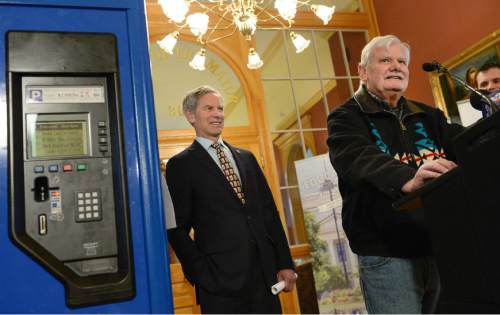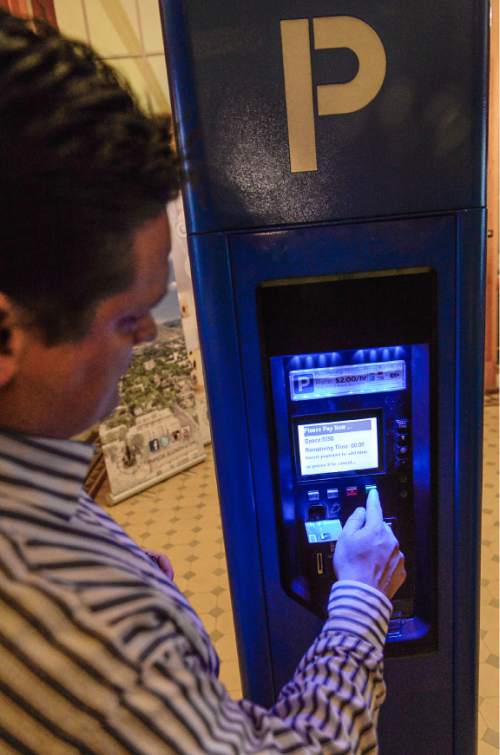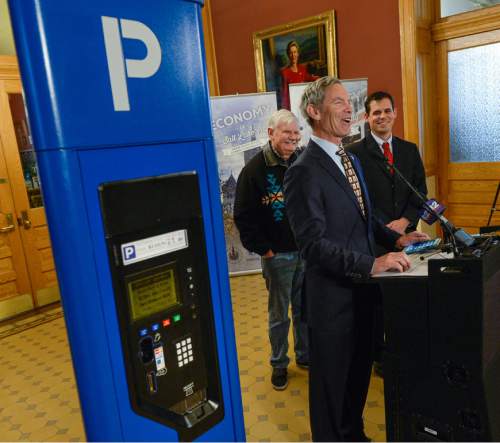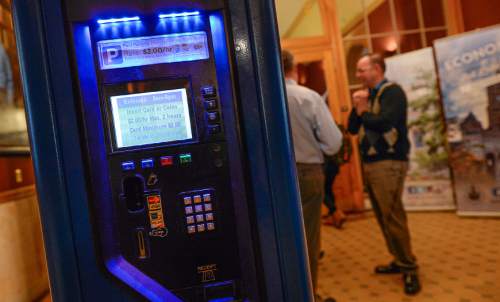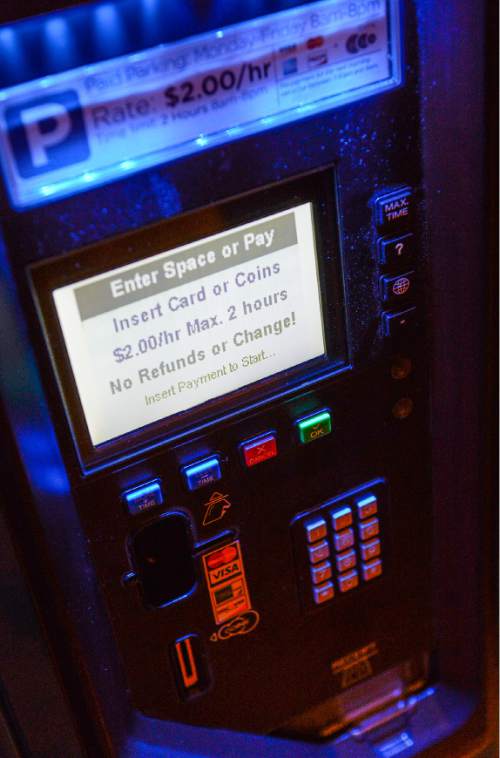This is an archived article that was published on sltrib.com in 2016, and information in the article may be outdated. It is provided only for personal research purposes and may not be reprinted.
Salt Lake City "abandoned the rule of law" when it collected millions of dollars in parking revenue after installing electronic pay stations to replace its curbside meters, a lawyer argued Thursday at the Utah Court of Appeals.
Attorney R. Shane Johnson — who represents three Utahns in a suit filed in 2014 seeking refunds of parking fees and parking violation fines paid by themselves and others — said the city was unjustly enriched and violated the due process rights of parkers under an ordinance that had not been updated to reflect the new technology.
Johnson alleged Salt Lake City did not have legal authority to take the money and asked a three-judge panel to overturn a 3rd District Court ruling dismissing the lawsuit.
But city attorney Margaret Plane said the case is not about the rule of law and argued the plaintiffs got due process because they had adequate notice about their parking violations and the two-tier process to appeal.
In addition, Plane disputed the claim that the city was unjustly enriched by getting parking fees and fines from motorists "without authority of law" from early 2012 to mid-2014, when the parking ordinance was updated. She pointed out that the plaintiffs got to use city streets for parking for their payment.
The appeals court took the arguments under consideration.
In late 2011 to March 2012, Salt Lake City replaced all of its 2,100 coin-operated meters with 344 parking pay stations, according to court records. The kiosks cover multiple parking spots.
City code at the time defined parking meters as "immediately contiguous" to the spaces being charged; "parking spaces" as being "adjacent to a parking meter;" and meters as coin-activated. The Salt Lake City Council voted to update the parking ordinance to cover the pay stations on July 15, 2014, about a month after the suit was filed.
The suit, a proposed class action, was amended a month later in August 2014. The three current plaintiffs (one of the original plaintiffs was replaced by someone else) all had gotten tickets in the two years after the kiosks were installed.
The plaintiffs alleged Salt Lake City deprived motorists of due process by making appeals onerous and threatening fees far in excess of the value of the ticket. The city collects approximately $3 million in parking revenue annually and between $3 million and $4 million for parking violations, according to the suit.
In a motion asking that the suit be dismissed, city lawyers argued that notices provided to the plaintiffs apprised them of their violations and gave them an opportunity to respond. And, they said, it was not "inequitable" for the city to keep parking revenue and penalties for parking violations, "given its uncontested authority to regulate parking."
And, while noting the 2014 ordinance update that reflected the technology change, the motion said that the prior code was adequate to allow for enforcement.
Third District Judge Robert Faust agreed with the city and dismissed the case in July 2015, leading to the appeal.
Motorists are getting some relief now from another source. On July 1, Salt Lake City launched a one-time courtesy dismissal program for people who get tickets due to errors they make at the pay stations. Parkers will be forgiven once for mistakes such as transposed numbers, wrong space numbers or dropped digits.
Twitter: @PamelaManson


